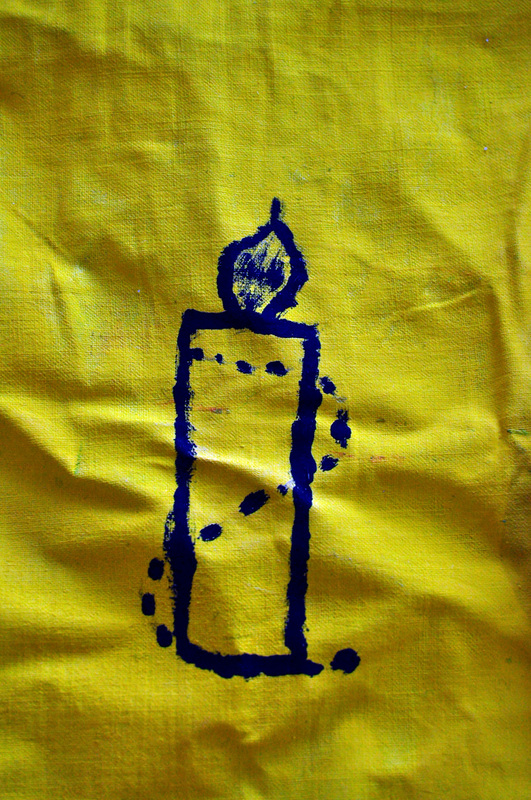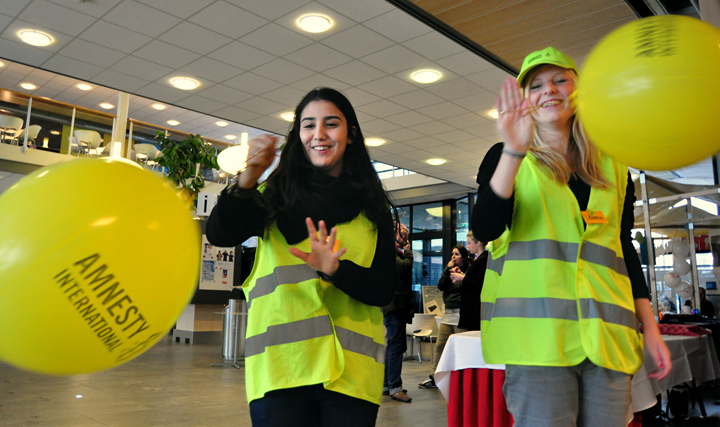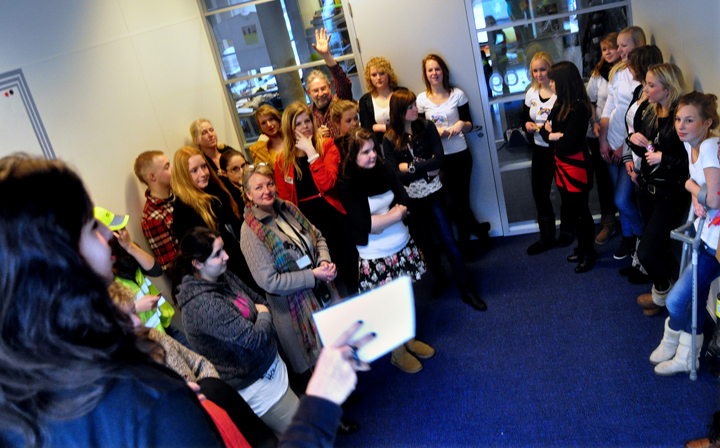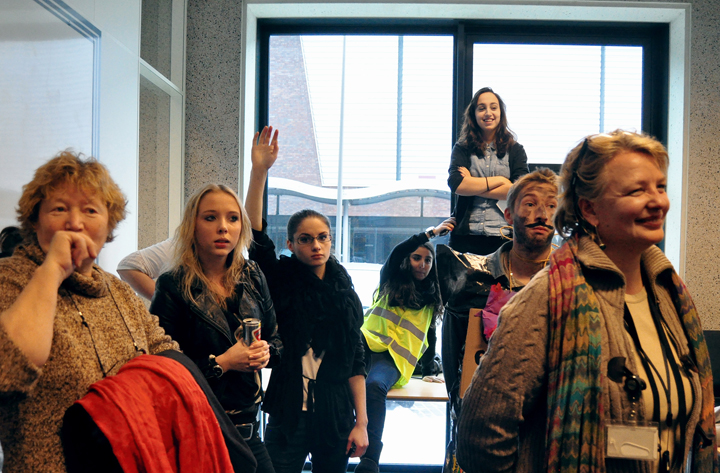In October I started working as a volunteer reporter and photographer for Amnesty International. The organization, whose goal is to support and enable human rights across the world, has one of its largest offices here in the Netherlands, and each province has their own local offices. I have enjoyed getting to cover local fundraising events for the organization in Friesland, Drenthe and Groningen this winter, the most recent being a Goededoelenmarkt (Good Goal Market, literally, but more accurately a Good Cause Marketplace) at Friesland College in Heerenveen. The Dutch version, which I also wrote (I have to admit, I am quite proud of that!), is on the site (www.amnesty.nl), but I wanted to post an English version here, along with some additional photos from the day.
All shades of yellow at the Amnesty International booth caught the eye during the Good Cause Marketplace at the Friesland College in Heerenveen. Six students studying to become social workers were representing the organization alongside other NGOs, including Doctors without Borders and KindWeesKind.
Eventually these students will work with the handicapped and others, young and old, who need assistance and help, so supporting Amnesty was a good fit. The Good Intentions Marketplace began as an assignment for the students, but for these young women it was a chance to learn more about the work that Amnesty does and to share information with visitors to the event. Many Amnesty items were for sale for fundraising, but there was also plenty of free information available for people who wanted to learn more about Amnesty's campaigns.
"I think it is important that everyone has the same rights," said Donna Aguel, one of the Amnesty stand volunteers. This belief was made clear in a debate which Aguel led about different subjects within the theme of human rights. There were 30 people participating, and they were asked to take a position of "agree" or "disagree," and then to stand on either side of the room with others who also held their opinion. Through questions, such as, "Should everyone be required to donate money so that children can attend school and receive care?" and, "Is the burka ban good or bad?", the participants were tasked with explaining why they were for or against these social questions.
The question about the burka ban was the most divisive. There were approximately the same number of people on either side of the issue, but a couple stood in the middle because they found it too difficult to decide. The final question regarded gay rights and whether or not homosexuality is a sickness. The entire group disagreed that it was a sickness, but two participants pretended to agree for the sake of the debate. These two questions in particular cover the borders between freedom and human rights, just as in the reality of the work that Amnesty does in many countries.
However, there is indeed hope for the future: in response to the question, "Are women less good at certain things, such as physically challenging work, than men?", one of the young men said, "In the future, men will also be able to give birth," and thereby everyone can share the same chances and responsibilities.
Eventually these students will work with the handicapped and others, young and old, who need assistance and help, so supporting Amnesty was a good fit. The Good Intentions Marketplace began as an assignment for the students, but for these young women it was a chance to learn more about the work that Amnesty does and to share information with visitors to the event. Many Amnesty items were for sale for fundraising, but there was also plenty of free information available for people who wanted to learn more about Amnesty's campaigns.
"I think it is important that everyone has the same rights," said Donna Aguel, one of the Amnesty stand volunteers. This belief was made clear in a debate which Aguel led about different subjects within the theme of human rights. There were 30 people participating, and they were asked to take a position of "agree" or "disagree," and then to stand on either side of the room with others who also held their opinion. Through questions, such as, "Should everyone be required to donate money so that children can attend school and receive care?" and, "Is the burka ban good or bad?", the participants were tasked with explaining why they were for or against these social questions.
The question about the burka ban was the most divisive. There were approximately the same number of people on either side of the issue, but a couple stood in the middle because they found it too difficult to decide. The final question regarded gay rights and whether or not homosexuality is a sickness. The entire group disagreed that it was a sickness, but two participants pretended to agree for the sake of the debate. These two questions in particular cover the borders between freedom and human rights, just as in the reality of the work that Amnesty does in many countries.
However, there is indeed hope for the future: in response to the question, "Are women less good at certain things, such as physically challenging work, than men?", one of the young men said, "In the future, men will also be able to give birth," and thereby everyone can share the same chances and responsibilities.




